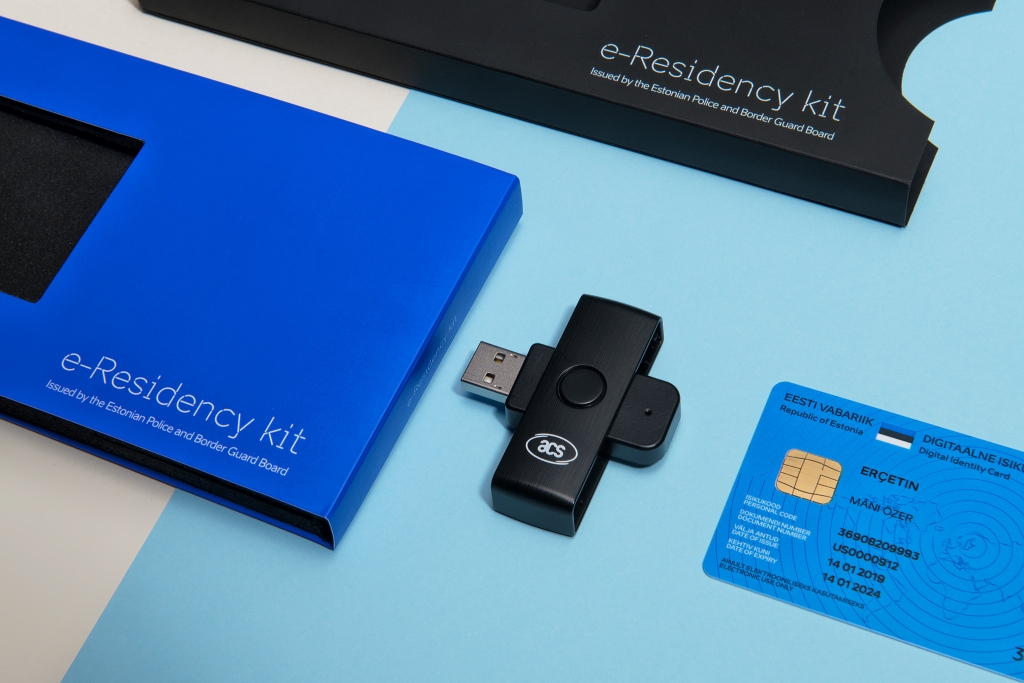“We are not a traditional government department,” says Ott Vatter, the managing director of Estonia’s enormously successful e-residency programme.
One look at the casually-dressed Vatter and his young team confirms that.
“I like to think that we are the most informal part of the Estonian government, and Estonia in general has an informal government already,” he adds.
Sten Tamkivi, the CPO at Topia, a company which builds products that help people and companies work everywhere, is a member of the e-residency programme’s board. A former senior manager at Skype, he is often said to be one of the godparents of the country’s booming tech scene. He likens e-residency to a start-up.
“A government start-up,” he tells me.
Even the e-residency programme’s offices mimic those of a start-up: it operates out of an old paper mill that has been repurposed as state-of-the-art office space, and has a ‘shoes-off’ policy: both employees and visitors wear slippers.
Launched in 2014 – the first ever e-resident was the veteran British journalist Edward Lucas, who covered the independence of the Baltic States in the early 1990s – Estonian e-residency has since become one the country’s leading brands, with the kind of global recognition start-ups crave.
Indeed, as a marketing tool for Estonia and its digital society it is invaluable.
“The level of media coverage for e-residency, and by association for digital Estonia, is immeasurably higher than the actual revenue it generates,” says Tamkivi. “Deloitte was hired to calculate the exact value of the publicity that has been generated by e-residency. It turned out to be such an absurdly high figure that nobody believed it, so we stopped using it.”
E-residency is a digital identity which enables entrepreneurs to start and manage an EU-based company online, from anywhere. It does not confer the right of physical or tax residence in Estonia: taxes are usually paid in the country where the company carries out its main activity.
Applications are made online using a platform which is – as you might expect – incredibly user-friendly. The application fee is 100 euros. Physical e-residency cards – beautifully packaged – are collected from Estonian embassies abroad.

Ott Vatter originally joined the programme on a temporary basis to create the online application user journey. It had initially been done offline, with applicants having go to the Estonian police with a pen and paper.
“Which was silly,” says Vatter. “Nobody uses pen and paper in Estonia anymore.”
“We were two guys in our mid-20s and we went to the foreign ministry saying that ‘Here’s what we are going to do’. Key to it was allowing successful e-residency applicants to collect their cards from Estonian embassies abroad. The ministry staff looked at us and said: ‘Estonian embassies are for Estonian citizens’. When we told them that what we were doing was innovative and that no country had ever done it before, they were not impressed. For them, that no country had ever done it before was a minus.”
Eventually, Vatter managed to persuade the foreign ministry that new business and new opportunities would be created for Estonia.
“And today, five years on, the bumpy road has been made smooth. It has been successful,” he says.
There are now more than 65,000 e-residents, who have set up around 12,000 Estonian companies. The refusal rate is low, at around three per cent. Most of those rejected have prior convictions for financial crimes. The background search into all applicants is carried out by the Estonian police and border guard service.
Once in possession of an e-residency card, holders can use their digital identity to make use of Estonia’s public e-services as well as the wide variety of e-services provided by international service providers, all part of Estonia’s open source X-Road, which links all public services together and enables each service to work in harmony.
All outgoing data is digitally signed and encrypted, and all incoming data is authenticated and logged, meaning that e-residents’ and other users of X-Road’s data is completely secure. This provides the freedom to easily start and run a global EU company fully online from anywhere in the world.
E-residents can open a company within a day and run the company remotely, apply for a business banking account and credit card, conduct e-banking, use international payment service providers, declare taxes, and sign documents digitally.
“The main reason that people become e-residents is to create a location-independent business,” says Vatter. “They want to sell their services globally, in different countries with different rules, and e-residency allows them to set up an EU company in Estonia from anywhere, simply using their e-residency cards. We have lots of journalists, lots of photographers, lots of software developers. Service-based industries with customers from different jurisdictions.”
Misuse of e-residency is almost non-existent.
“When you collect your card, your fingerprints are taken. What’s more, all information regarding Estonian-registered companies is publicly available, from beneficial owners to tax returns. If you were going to choose a jurisdiction in which to commit any financial foul play, then Estonia is the probably the last one you would pick,” says Vatter.
Since the United Kingdom voted to leave the European Union in 2016, there has been a great deal of interest in e-residency emanating from the UK.
Last month, e-residency revealed that since 2016 the number of UK e-residents has increased more than 550 per cent to reach 3,297 at the end of February 2020. In becoming e-residents, British businesses can be safe in the knowledge that they will be able to do business with their EU-based partners until trading arrangements have been made.
“Britain’s business community needs certainty whilst the UK government negotiates trade agreements with the EU this year,” says Vatter. “Companies are still so unsure about the future of their organisations. In fact, we found that over a third of UK business owners are considering moving themselves or their companies out of the UK because of Brexit. We are proud to provide the support that UK businesses and entrepreneurs need to grow and expand their business operations post-Brexit. Digital ID and digital residency will be the next frontier in the way the public sector interacts with its citizens and the wider world, and Estonia is at the forefront of this digital revolution.”
The similarities between e-residency and Estonia’s tech start-ups does not end with its young team and informal office environment: its roots are also much the same.
“There is only a small local market in Estonia: you cannot build a billion-dollar company focusing on a market of 1.3 million people,” says Sten Tamkivi, explaining the global outlook of so many Estonian start-ups.
As such, Tamkivi believes that although there is a risk of e-residency being used as little more than a way of ensuring freelancers or companies who may never come to Estonia, or may not pay taxes in Estonia have an EU footprint, “at this stage we do not care. We are in growth mode.”
Besides, the programme – which costs around five million euros per year to operate – is already profitable, bringing in more than 10 million euros per year in direct taxation. And that’s before marketing has been factored in.
“If you look at e-residency through a start-up lense, I would love to have shares in it,” admits Tamkivi.
The coronavirus pandemic could see a huge increase in applications for e-residency, as people look for remote solutions to ensure that they can continue to open and operate international businesses without the need to travel. Even EU countries which do not yet offer digital services could see a digital exodus towards those which do.
Estonia is well placed to take advantage: almost 20 years since it set about creating a digital society, the rest of the world is still playing catch-up.


